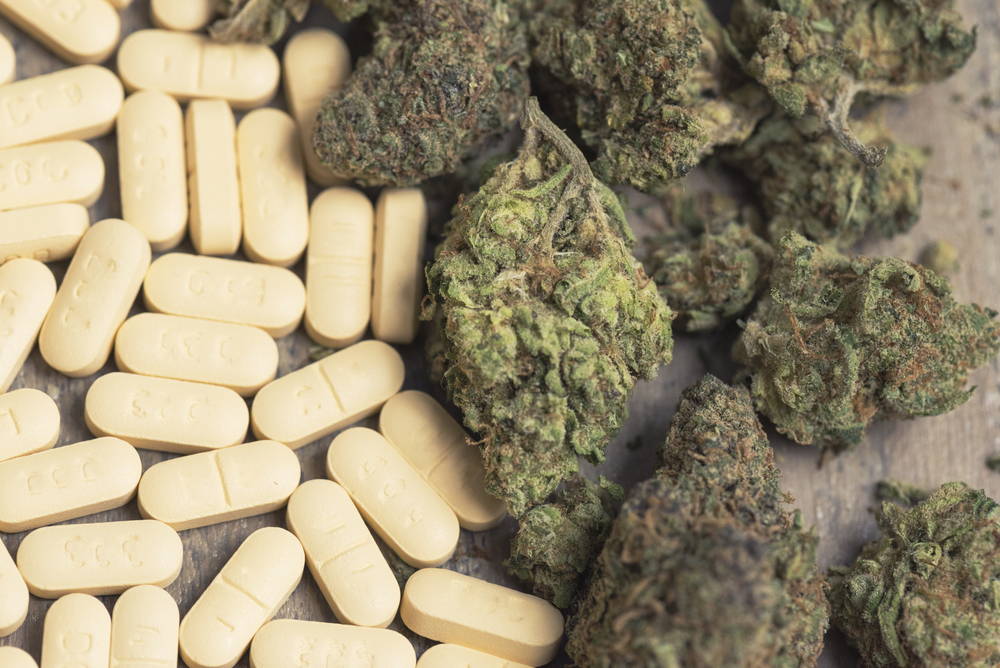Medical Herbs
Read also:
(advertisement)

New research shows that cannabis is more effective at treating pain than traditional pain medications. More than half of patients surveyed (57%) who use cannabis to treat musculoskeletal pain say this. And 40% of patients who use cannabis need less of other painkillers.
The study was conducted on 629 participants by the University Health Network and published in the journal Journal of Cannabis ResearchParticipants were adults aged 18 years and older with chronic MSK pain who attended the Orthopedic Clinic at Toronto Western Hospital, University Health Network, for an initial consultation with an orthopedic surgeon.
The aim of the recently published study was not to definitively determine whether cannabis can relieve pain in muscles, tendons, or joints, but to investigate its use, potential barriers, and self-reported effectiveness by patients with Musculoskeletal Pain (MSK).
9 out of 10 patients benefit from cannabis
More than 1 in 5 patients surveyed had experience with cannabis. They used it to manage their pain, or had used cannabis for this reason in the past. Of these, nearly two-thirds said they felt cannabis was very or somewhat effective. More than 9 in 10 said it was at least somewhat effective.
More than half (57%) said cannabis was more effective than other pain medications. Forty percent reported using other pain medications less frequently since using cannabis. Only in 26% of cases did a doctor recommend cannabis.

40% of patients surveyed needed less traditional medications because of cannabis.
CBD in oil form is the most popular.
In particular, among those who reported using cannabis for pain relief, CBD was the most commonly used cannabinoid (39%), followed by hybrids of multiple cannabinoids (20%). Nearly a quarter (23%) said they were unaware of the composition of their cannabis.
Furthermore, 65% of patients who had not used cannabis said they were interested in using it to treat their pain. However, they reported that the reasons holding them back were “lack of knowledge about access, use, and evidence, and stigma.”
In 72% of the 23% of patients who reported using cannabis to manage MSK pain, it was still part of their current treatment. The most common uses were ingesting the oil (57%), smoking (36%), and vaping (32%).
The most commonly reported side effects were dry mouth (43%) and fatigue (23%). 15% of patients also reported experiencing a lack of motivation. About 39% reported experiencing no side effects. Many users reported that cannabis was also effective in treating other symptoms. In particular, sleep disturbances (44%), anxiety (26%), and headaches (18%) were reduced by the use of medical cannabis.

CBD in oil form has been the most widely used form of cannabis.
Those with multiple complaints are more likely to use cannabis.
Despite the relief self-reported by cannabis users, the researchers also found that people who used cannabis had more pain and a wider range of other conditions. They suggested that patients with a wide range of ailments may be more likely to seek cannabis as an alternative or complementary form of relief.
“It is noteworthy that cannabis users showed a range of comorbid conditions, including higher prevalence of depression and pain, greater number of painful body areas, longer duration of pain, and more frequent visits to pain clinics/specialists compared to non-cannabis users,” the authors wrote.
“This observation prompts us to consider the possibility that cannabis use may arise in response to increased levels of pain and dissatisfaction with current treatment modalities. It is possible that a significant proportion of cannabis users may have turned to cannabis to obtain relief from their increasing pain burden, which appears to be resistant to conventional treatments.
“Furthermore, we found that despite experiencing more pain, cannabis users used a wider range of medications, including muscle relaxants, opioids, and antidepressants, than their non-cannabis-using counterparts,” they added. “This may also suggest that cannabis is sought as an alternative means of pain management, particularly in cases where previous treatments have provided less than ideal results.”
This possibility was strengthened by the fact that one of the strongest predictors of cannabis use was the presence of symptoms consistent with chronic pain syndrome, “suggesting that patients with chronic MSK pain may be dissatisfied with conventional treatments and seek alternative pain relievers.”

Experience with recreational cannabis appears to be the greatest predictor of medical use.
Recreational cannabis experience is the strongest indicator of medical use
However, the strongest predictor was whether patients had ever used cannabis for recreational purposes. Previous recreational cannabis use was associated with a more than tenfold increase in the likelihood of medical use. However, the researchers did not find this really surprising, as current cannabis use has already been shown to have a strong impact on a person’s perception of risk, stigma, and acceptance.
The authors acknowledge that some of the observed efficacy may be due to the placebo effect and call for more double-blind, placebo-controlled studies in the future.
[Foto’s: Shutterstock]
(advertisement)

“Total coffee specialist. Hardcore reader. Incurable music scholar. Web guru. Freelance troublemaker. Problem solver. Travel trailblazer.”










More Stories
GALA lacks a chapter on e-health
Weird beer can taste really good.
Planets contain much more water than previously thought